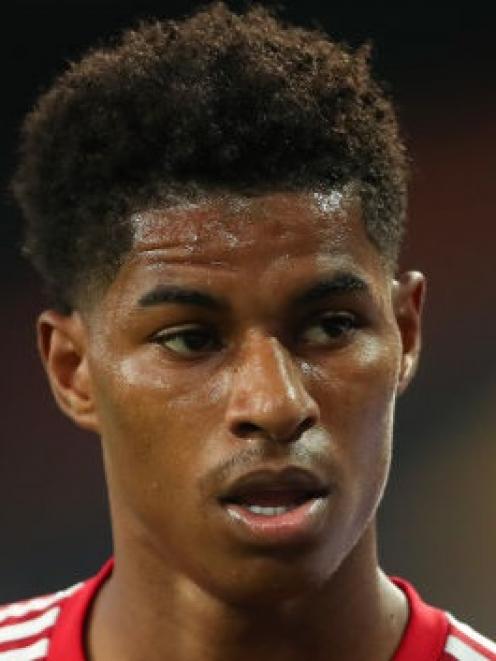
Very little, obviously — especially when it comes to wealth — but they are both essentially involved in the same thing, and the contrasting scale of their economics can provide an instructive lens on how sport lost its way.
Marcus Rashford’s is a genuinely heartening story in a high-end sporting landscape where so many stars, often totally unfairly, are painted as self-absorbed and money-hungry narcisists.
The brilliant young forward has just been awarded the MBE. Not, you realise, for banging in goals in the Premier League, but for services to children.
At 22, Rashford is still something of a kid himself. But his remarkable efforts to fight the British Government’s plan to end free school meal vouchers in England speak volumes about his maturity and compassion.
Rashford won that battle, forcing lawmakers into a U-turn after leading an intensive campaign to highlight the plight of hungry schoolchildren.
He may never win a Premier League title — Manchester United is not the force it was — but the super striker will go down in the history books as one of the great achievers of 2020, a bright spot in the Covid-19 darkness.
Naturally, Rashford is rewarded handsomely for what he does on the football field, paid some $NZ390,000 a week — yes, every week — to kick a ball around.
And good for him. But, goodness, what some New Zealand sports clubs would do for a fraction of that sort of money.
One of the takeaways of the recent national survey of New Zealand clubs is that they are in need of more financial support.
The New Zealand Amateur Sport Association and AUT’s Sport Performance Research Institute canvassed more than 1100 clubs across 80 sports around New Zealand, and the results were illuminating.
Covid-19 has clearly had an impact, as 11% of clubs — more than double the 2019 figure — have reported losing money.
The average club size was down a further 10% to just 175, and 30% of clubs were in a membership decline.
Grassroots sport in New Zealand has been battling for some time, and it seems unlikely these figures will be heading in the opposite direction any time soon.
Interestingly, more than two-thirds of clubs said they had received no financial relief from national or regional bodies, or central or local government.
In May, the Government announced a $265million package to help sport through the pandemic. If that money is being used, it isn’t getting to the very base of the pyramid. And that is a problem — club sport contributes much to the sector, and to the fabrics of our community.
The survey’s leaders have urged national sporting leaders to do more for the clubs. Failing that, perhaps we can see if young Marcus Rashford fancies another charitable cause.












